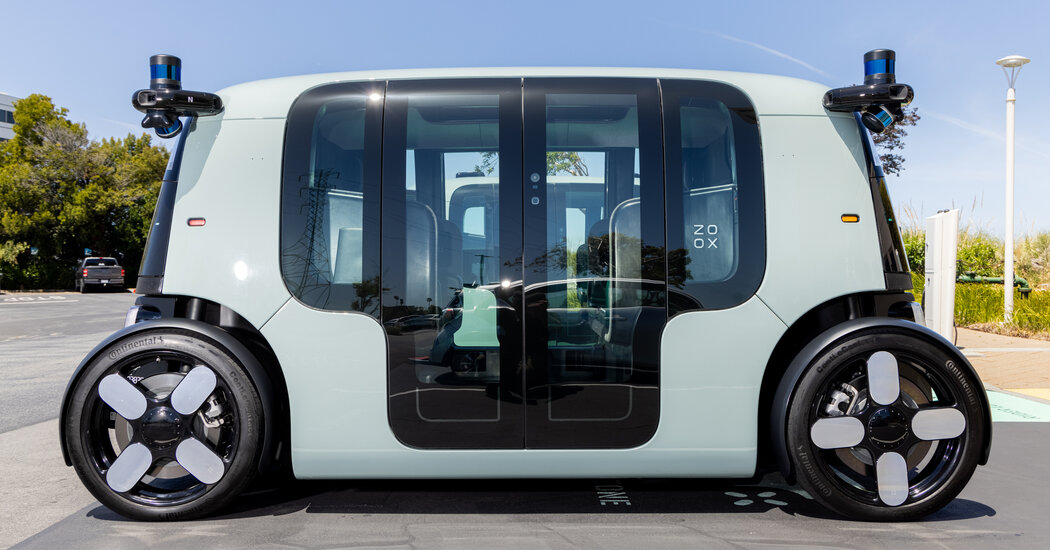Call it the end of the beginning of the A.I. boom.
Since mid-March, the financial pressure on several signature artificial intelligence start-ups has taken a toll. Inflection AI, which raised $1.5 billion but made almost no money, has folded its original business. Stability AI has laid off employees and parted ways with its chief executive. And Anthropic has raced to close the roughly $1.8 billion gap between its modest sales and enormous expenses.
The A.I. revolution, it is becoming clear in Silicon Valley, is going to come with a very big price tag. And the tech companies that have bet their futures on it are scrambling to figure out how to close the gap between those expenses and the profits they hope to make somewhere down the line.
This problem is particularly acute for a group of high-profile start-ups that have raised tens of billions of dollars for the development of generative A.I., the technology behind chatbots such as ChatGPT. Some of them are already figuring out that competing head-on with giants like Google, Microsoft and Meta is going to take billions of dollars — and even that may not be enough.
“You can already see the writing on the wall,” said Ali Ghodsi, chief executive of Databricks, a data warehouse and analysis company that works with A.I. start-ups. “It doesn’t matter how cool it is what you do — does it have business viability?”
While plenty of money has been burned in other tech booms, the expense of building A.I. systems has shocked tech industry veterans. Unlike the iPhone, which kicked off the last technology transition and cost a few hundred million dollars to develop because it largely relied on existing components, generative A.I. models cost billions to create and maintain. The cutting-edge chips they need are expensive and in short supply. And every query of an A.I. system costs far more than a simple Google search.
Investors have poured $330 billion into about 26,000 A.I. and machine-learning start-ups over the past three years, according to PitchBook, which tracks the industry. That’s two-thirds more than the amount they spent funding 20,350 A.I. companies from 2018 through 2020.
The challenges hitting many newer A.I. companies stand in contrast to the early business results at OpenAI, which is backed by $13 billion from Microsoft. The attention it has generated with its ChatGPT system has allowed the company to build a business charging $20 a month for its premium chatbot and offered a way for businesses to build their A.I. services with the technology that drives its chatbot, which is called a large language model. OpenAI pulled in around $1.6 billion in revenue over the last year, but it is unclear how much the company is spending, two people familiar with the company’s business said.
OpenAI did not respond to requests for comment.
But even OpenAI has had challenges broadening sales. Businesses are wary that the A.I. systems can generate inaccurate answers. The technology has also been troubled by questions about whether the data that supported the models infringed on copyrights.
(The New York Times sued OpenAI and Microsoft in December for copyright infringement of news content related to A.I. systems.)
Many investors point to Microsoft’s rapid sales growth as evidence of A.I.’s business potential. In its most recent quarter, Microsoft reported an estimated $1 billion in sales from A.I. services in cloud computing, up from essentially nothing a year ago, said Brad Reback, an analyst at the investment bank Stifel.
Meta, on the other hand, doesn’t expect to make money for years off its A.I. products, even as it increases its infrastructure spending by up to $10 billion this year alone. “We’re investing to stay at the leading edge of this,” Mark Zuckerberg, Meta’s chief executive, said during a call with analysts last week. “And we’re doing that at the time when we’re also scaling the product before it is making money.”
A.I. start-ups have been challenged by that gap between spending and sales. Anthropic, which has raised more than $7 billion with backing from Amazon and Google, is spending about $2 billion a year but pulling in only about $150 million to $200 million in revenue, said two people familiar with the company’s financials, who requested anonymity because the figures are private.
Like OpenAI, Anthropic has turned to partnerships with large, established tech companies. Its chief executive, Dario Amodei, has been courting customers on Wall Street, and it recently announced that it was working with Accenture, the global consulting company, to create custom chatbots and A.I. systems for companies and government organizations.
Sally Aldous, a spokeswoman for Anthropic, said that thousands of businesses were using the company’s technology and that millions of consumers were using its publicly available chatbot, Claude.
Stability AI, which does image generation, announced last month that its founding chief executive, Emad Mostaque, had resigned, just a week after the resignation of three researchers who were part of the five-person team that built the company’s original technology.
It was on track to generate about $60 million in sales this year against about $96 million in costs from its image generation system, which has been available to customers since 2022, a person familiar with its business said.
Stability AI’s financial position looks better than those of language-model makers like Anthropic because developing image generation systems is less expensive, A.I. investors said. But there’s also less demand to pay for images, so the sales prospects are more uncertain.
Stability AI has been operating without the support of a tech giant. After raising $101 million from venture capitalists in 2022, it needed more funds last fall but was struggling to show investors that it could sell its technology to businesses, said two former employees, who declined to speak publicly because they were not authorized to do so. It raised $50 million from Intel late last year but still faced financial pressure, they said.
As the start-up grew, its sales strategy shifted, these people said. At the same time, it was spending millions a month on computing costs. Some investors pressured Mr. Mostaque to resign, according to an investor, who declined to speak publicly about a personnel issue. This month, after his resignation, Stability AI did layoffs and restructured its business to put the company on “a more sustainable path,” according to a company memo reviewed by The New York Times.
Stability AI declined to comment. Mr. Mostaque declined to discuss his exit.
Inflection AI, a chatbot start-up founded by three A.I. veterans, had raised $1.5 billion from some of the biggest names in tech. But a year after introducing its A.I. personal assistant, it had almost no revenue, according to one investor. The Times reviewed a letter that Inflection had sent to investors saying additional fund-raising was “not the best use of our investors’ money, especially in the context of the current frothy A.I. market.”
In late March, it folded its original business and largely disappeared into Microsoft, the world’s most valuable public company.
Microsoft also helped fund Inflection AI, whose chief executive, Mustafa Suleyman, rose to prominence as one of the founders of DeepMind, a seminal artificial intelligence lab that Google acquired in 2014. Mr. Suleyman founded Inflection AI alongside Karén Simonyan, a key DeepMind researcher, and Reid Hoffman, a leading Silicon Valley venture capitalist who helped found OpenAI and is on Microsoft’s board.
Microsoft and Inflection AI declined to comment.
The company was steeped in talented A.I. researchers who had worked at places like Google and OpenAI.
But almost a year after releasing its A.I. personal assistant, Inflection AI’s revenue was, in the words of one investor, “de minimis.” Essentially zilch. It could not continue to improve its technologies and keep pace with chatbots from the likes of Google and OpenAI unless it continued to raise huge sums of money.
Now Microsoft is swallowing most of its staff, including Mr. Suleyman and Dr. Simonyan.
This is costing Microsoft more than $650 million. But unlike Inflection AI, it can afford to play the long game. It has announced plans for the staff to build an A.I. lab in London, working with the kind of systems the start-ups are hoping will break through.
Erin Griffith contributed reporting.







